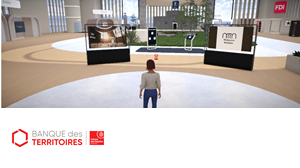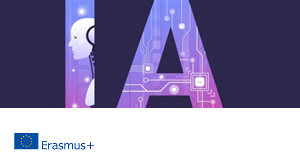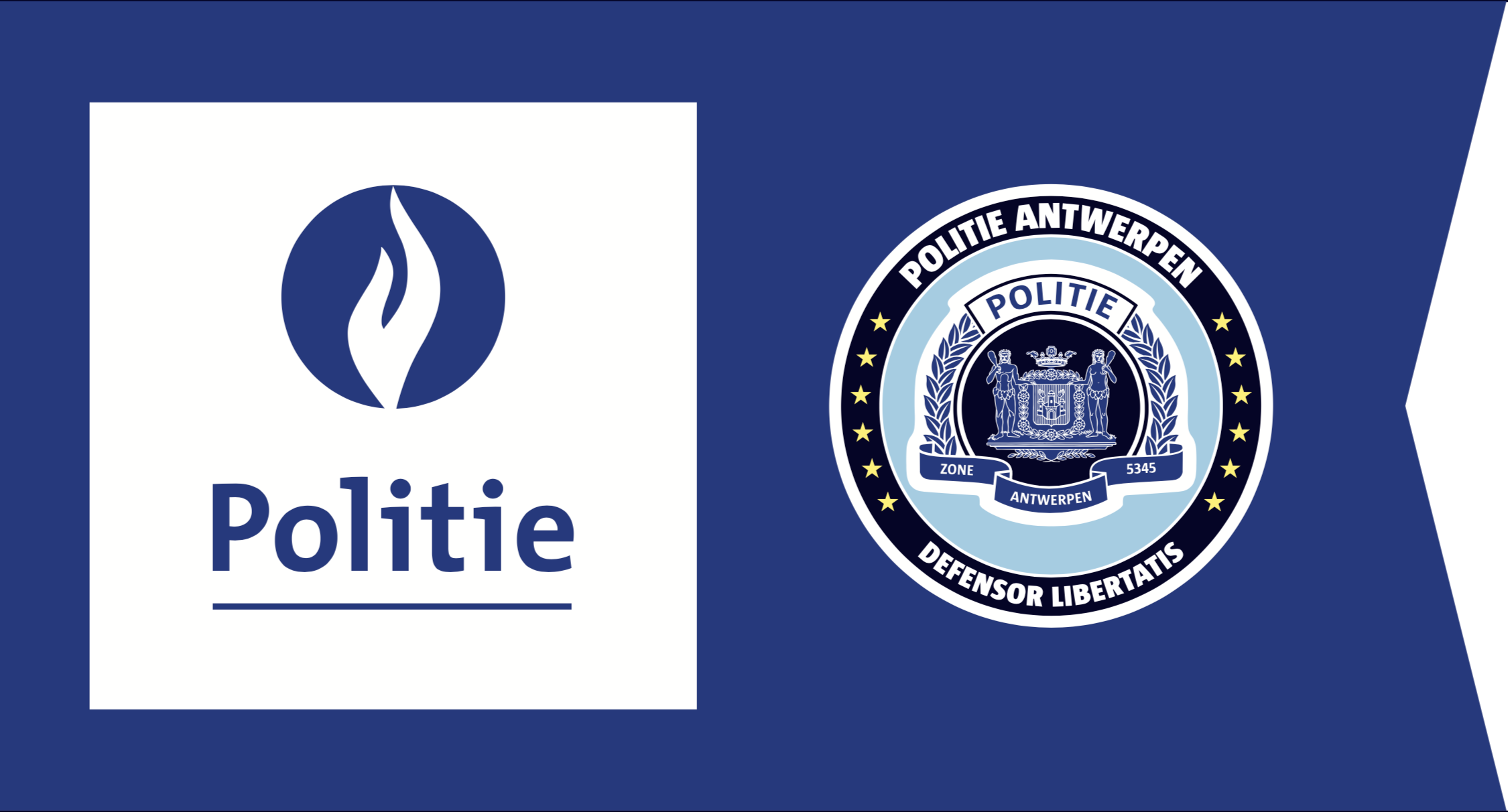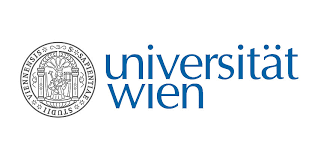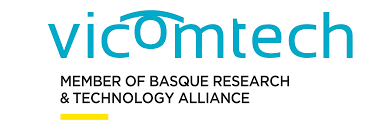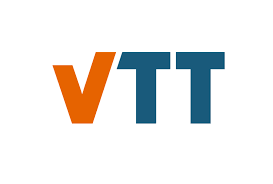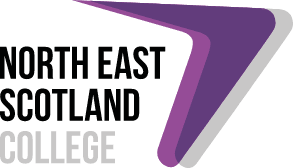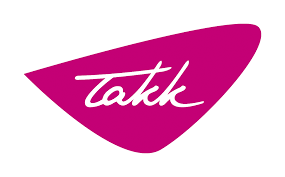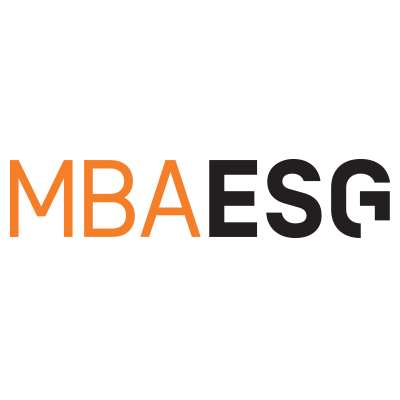R&D
Our Research & Development projects

Museum Metaverse
Multiple portals to virtual exhibition venues
RESEARCH PARTNERS
TARGET AUDIENCES
Museums, cultural and heritage stakeholders.
PROJECT SCHEDULE
Project beginning: Q4 2023
Project ending: Q3 2025
MEDIA
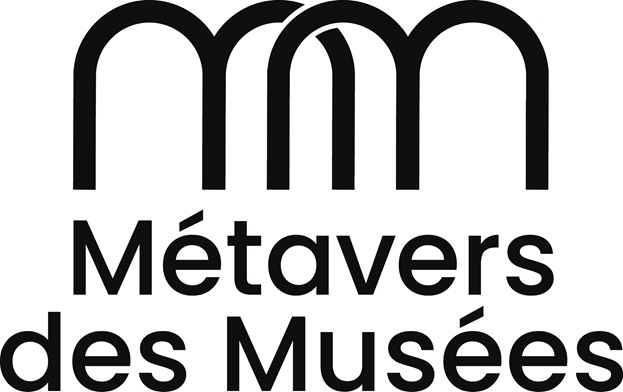
PROJECT DETAILS
Museum Metaverse is a project to create an immersive environment offering visitors a single point of entry into a 3D universe with multiple portals to virtual exhibition spaces. Two areas of work will be studied:
1. The design and opening up of a metaverse available to cultural institutions of all sizes, and accessible to as many people as possible: the metaverse for all.
2. The development of digitisation tools adapted to cultural institutions, in order to offer specific interactive digital content and enrich existing digital collections: digitisation for all.
Museum Metaverse is an operation supported by the French government as part of the France 2030 "Digitisation of Heritage and Architecture" programme, operated by Caisse des Dépôts.
PRELIMINARY TESTING
Museum Metaverse will be developed using an iterative, user-centred design approach, explored through two representative pilot experimental frameworks:
- Metaverse for all: experimentation with the deployment of a turnkey metavers, with exhibition spaces, ticketing, and the study of distribution and exhibition rights.
- Digitisation for all: development of a platform for the acquisition and creation of interactive 3D content with the aim of establishing a proof of concept (PoC).
Download PDF
ROLEPL-AI
Remote soft skills training with AI-based simulation
RESEARCH PARTNERS
TARGET AUDIENCES
Teachers, trainers, and students in the field of Tourism
PROJECT SCHEDULE
Project beginning: Q3 2023
Project ending: Q3 2025
MEDIA



PROJECT DETAILS
ROLEPL-AI is a European collaborative project whose purpose is to design and test an integrated set of tools based on immersive technology, artificial intelligence and pedagogical practice, for the benefit of tourism vocational education and training. The project aims to train soft skills remotely, by pushing practice through the implementation of an AI-based simulation, as well as the use of an immersive environment, the virtual campus, to host this exchange.
This research programme brings together five entities, spread over three countries, and is supported by the European ERASMUS+ programme. Manzalab and its subsidiary Manzavision are responsible for creating the application.
PRELIMINARY TESTING
Pilot sessions will be carried out during the 2024-2025 academic year in the 2 partners training centres. Students will use the application developed as part of their courses for several weeks.
STATUS
The consortium gathers 2 European training centres: Fachhochschule Dresden (Germany) and VUC Storstrøm (Denmark), in which teachers and researchers are involved. The goal of the first phase of the project is to analyse the literature on learning and AI and to create a use case for implementation in real teaching and vocational training conditions. On this basis, the application will be developed by Manzalab Group with the expertise of Inceptive. The prototype will then be tested by teachers and students.
Download PDF
VR-DECISION
Virtual Planning Center
RESEARCH PARTNERS
TARGET AUDIENCES
Military officers in operational planning situations.
PROJECT SCHEDULE
Start Date : T2 2020
End Date : T3 2022
MEDIA
PROJECT DETAILS
VR-DECISION is a project aiming at studying the impact of immersive technologies on the collaborative process underlying the decision-making cycle. For this purpose, this environment will allow remote experts to meet virtually in order to plan an operation thanks to collaborative tools.
This virtual planning center also aims to facilitate mutual understanding of situations and therefore decision-making by using 3D representations of information and resources.
VR-DECISION is funded by the DGA RAPID program.
PRELIMINARY TESTING
The development of VR-DECISION took place in an iterative process of user-centered design. In order to create an environment and tools adapted to the real practice of military planning, an activity analysis followed by user tests were carried out. The feedback from the end-users allowed to improve the iterations of the prototype. A final user test will evaluate the impact of VR-DECISION on decision making, during an operation planning situation during a fictitious catastrophic flooding episode. Planning and decision making will thus be evaluated under two conditions: (1) using VR-DECISION; (2) using existing means (Teams, Webex). First tested in a military context, the virtual planning center aims to be used in multiple civilian contexts.
Download PDF
INFINITY
COLLABORATIVE VIRTUAL ENVIRONMENT FOR INVERSTIGATIONS
RESEARCH PARTNERS
TARGET AUDIENCES
Law enforcement agencies (LEAs)
PROJECT SCHEDULE
Start Date: 2020
End Date: 2023
MEDIA

PROJECT DETAILS
INFINITY aims to transform the traditional idea of criminal investigation and analysis using immersive and collaborative environments. INFINITY's concept is based around four core research and technical innovations that together, will provide a revolutionary approach and convert data into actionable intelligence.
Infinity’s investigative immersive and interactive collaboration environment (I3CE) provides LEAs with methods and tools to prevent, detect, analyse and combat criminal activities faster and more successfully by enhancing shared situational awareness and decision-making. Ultimately, these capabilities will bring about a paradigm shift in the capacity of EU Member States (MS) in the fight against cybercrime and terrorism while putting in place governance processes to maintain full compliance with fundamental rights and protecting privacy and personal data.
PRELIMINARY TESTING
As leading experts in VR collaborative work environments, Manzalab will lead Work Package 4, the collaborative VR application allowing distant people to meet in the same virtual environment and share information (text files, 2D and 360° images, 2D and 360° videos, 3D models). We will be in charge of the management system: access, interaction, communication.
Download PDF
Onboarding & Student Retention
Onboarding and retention app in VET schools
RESEARCH PARTNERS
TARGET AUDIENCES
NEETs, student counsellors and teachers in vocational training (VET)
PROJECT SCHEDULE
Project beginning: Q4 2020
Project ending: Q3 2023
MEDIA

PROJECT DETAILS
O&SR is a European collaborative project whose objective is to promote a good study culture and increase completion rates. To this aim, the partners will develop and test an application for students integrating a follow-up with well-being surveys. This application will be available online and on mobile phones. It will itself use game mechanics. The target users are NEETs and student counsellors in Europe.
The research program gathers six organisations from five countries and is supported by ERASMUS+ funding. Manzavision is responsible for the creation of the application.
PRELIMINARY TESTING
A Super Users activity to show the application to teachers will be conducted in 2023 in the training center of the project’s coordinator.
STATUS
The consortium gathers 4 European training centers: VUC Storstrøm (coordinator, Denmark), Fønix (Norway), NesCol (Scotland), TAKK(Finland) and the research center CeFU (Denmark), in which teachers and researchers are involved. During a first stage, an analysis will be carried out for the creation of a guidebook, in order to identify the issues regarding student retention and describe the functions they would look for in the application. The development of the application is based on this feedback. A prototype will be built from Manzavision’s expertise and tested in real-life situations.
Download PDF
HOTEL ACADEMY
ENRICHING TEACHING AND LEARNING IN HOSPITALITY MANAGEMENT
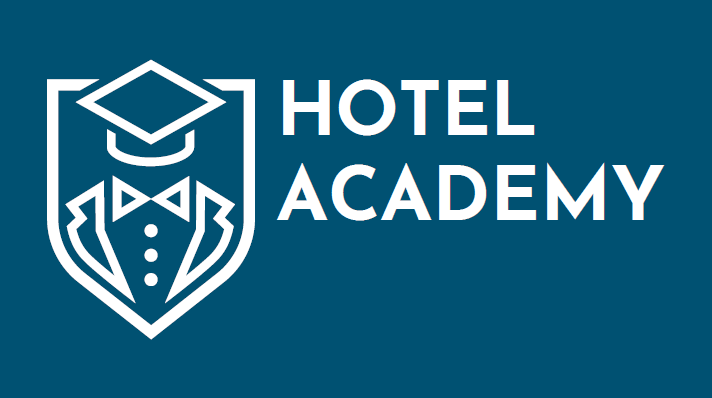
PROJECT DETAILS
HOTEL ACADEMY is a European collaborative project whose purpose is to develop digital tools, including mobile application, collaborative Virtual Reality tool and serious games and evaluate how they can be integrated in daily practices to train students and professionals in the field of Hospitality. The project also aims at evaluating the impact of the integration of such tools in the teaching and learning.
The research program gathers four organisations from three countries, it is coordinated by Manzavision and is supported by ERASMUS+ funding.
PRELIMINARY TESTING
An experimentation will be conducted in 2021 in the 3 partner training centers. Teachers will use the digital tools in class with their students for a couple of weeks.
STATUS
The consortium gathers 3 European training centers: FHD (Germany), MBA ESG (France) and EUC (Cyprus), in which teachers are involved. During a first stage, teachers are interviewed, in order to give their expectations and possible restrictions regarding digital technologies. The adaptation of the digital tools will be based on this feedback. A prototype will be built from Manzalab’s expertise and tested in real-life situations.
Download PDF
GATE:VET
GAMIFICATION IN TEACHING AT VET SCHOOLS
RESEARCH PARTNERS
TARGET AUDIENCES
Teachers and trainers in vocational training (VET)
PROJECT SCHEDULE
Project beginning: Q3 2019
Project ending: Q3 2021
MEDIA

PROJECT DETAILS
GATE:VET is a European collaborative project whose objective is to promote the use of game in vocational training. To this aim, the partners will develop and test a training program for teachers integrating a digital platform. This platform will be available online and on mobile phones. It will itself use game mechanics. The target users are teachers and trainers in Europe.
The research program gathers six organisations from five countries and is supported by ERASMUS+ funding. Manzavision is responsible for the creation of the platform.
PRELIMINARY TESTING
A Training of Trainers to show the platform to teachers will be conducted in 2021 in the training center of the project’s coordinator.
STATUS
The consortium gathers 5 European training centers: AFBB (coordinator) and FHD (Germany), VUCSTOR (Denmark), National College Nicu Gane (Romania) and Coventry University (UK), in which teachers are involved. During a first stage, teachers were interviewed, in order to give their expectations and possible restrictions regarding gamification and describe the functions they would look for on a gamification platform. The development of the platform is based on this feedback. A prototype will be built from Manzalab’s expertise and tested in real-life situations.
Download PDF
3VIMPACTS
VISUAL FATIGUE AND VIRTUAL REALITY LEARNING RESEARCH PARTNERS
RESEARCH PARTNERS

Dr Laure Leroy
Lecturer University Paris 8, Paragraphe lab
TARGET AUDIENCES
Any members of the public participating in virtual reality training
PROJECT SCHEDULE
Start date: Q2 2017
End date: Q2 2020
MEDIA

PROJECT DETAILS
Manzalab and the University of Paris 8 have joined forces in the context of the 3VIMPACTS project. The goal of this project is to study the impact of visual fatigue on learning through play with virtual reality. The uses of this technology are indeed increasing. Manzalab is also contributing to their development. However, few players in the sector question the consequences of these devices for the visual system.
This is the subject of the CIFRE thesis by Alexis Souchet and co-supervised by the Paragraphe and Manzalab laboratories.
PRELIMINARY TESTING
The first experiment will take place in 2018. Having a large scale for this type of study, it will take place within the CVI of IDEFI-CreaTIC at Montparnasse tower. The volunteers will participate in a serious game for training in a job interview under multiple experimental conditions. The comparison of these different groups will allow researchers to identify parameters that influence the performance and quality of virtual reality experiences for optimal learning.
Several other experiments will be conducted during the project to make it possible to define best practices for the design of virtual reality training.
Download PDF
VICTORIA
Video analysis tools for investigations
RESEARCH PARTNER
TARGET AUDIENCES
Law enforcement
PROJECT SCHEDULE
Start date: Q2 2017
End date: Q2 2020
MEDIA

PROJECT DETAILS
Videos collected and analyzed by law enforcement represent a critical resource for criminal investigations and terrorist acts. Recent events that occurred in London, Nice, Paris, Barcelona and Brussels have further demonstrated the importance of video recordings. At the same time, the volume of video available is constantly increasing due to the proliferation of recording and videosurveillance equipment in public and private spaces, cameras worn by police officers, smartphones, etc.
The VICTORIA project, initiated in May 2017 for a period of 3 years with the support of the European Commission, addresses this need for video analysis and aims to offer a platform compliant with ethical and regulatory constraints to speed up data processing and thus facilitate the work of the police.
STATUS
Manzalab participates in the Victoria project by creating tools and virtual environments to allow testing and training of video analysis algorithms. These tools will offer the option to easily vary the conditions of the analyzed scenes (lighting, image quality, etc.) and improve the robustness of the analyses.
Download PDF
KALULU
A suite of educational and fun applications
RESEARCH PARTNERS



Pr Stanislas Dehaene
Professeur au Collège de France
TARGET AUDIENCES
Children in all countries.
MEDIA



PROJECT DETAILS
The XPRIZE Global Learning Challenge competition focuses on the most wonderful challenge: to create applications to allow kids around the world to learn to read, write and count autonomously.
As part of its participation in the XPRIZE competition, Manzalab has assembled a team of developers, graphic designers and application experts. This team is led by Cassandra Potier Watkins, a cognitive science researcher under the supervision of Prof. Dehaene. She manages the Kalulu project, a suite of educational and fun open-source applications available in English, French and Swahili.
The project has also obtained support from the Future Investment Program in the context of the LUDO project.
PRELIMINARY TESTING
- Tanzania, September 2017
- France, September 2017
In France, Kalulu is to be tested on 1,000 students at the academies of Nice and Poitiers.
Download PDF
REUs
PREPARATION OF MEETING FOLLOW-UP DOCUMENTS
RESEARCH PARTNER
TARGET AUDIENCES
Professionals taking part in meetings
PROJECT SCHEDULE
Start date: Q3 2016
MEDIA

PROJECT DETAILS
REUs is an FUI project accredited by the competition clusters Minalogic, Cap Digital, TES and Aerospace Valley.
It is based on a reflection about the concept of work meetings, events that are well known to all of us in our daily professional lives that take up a good amount of our time. REUs aims to build tools to improve the efficiency of meetings by preparing documents downstream.
PRELIMINARY TESTING
Manzalab is interested in technologies to be developed as part of the REUs project in order to integrate them into its virtual reality applications. Whether to organize remote meetings or for training, the uses are growing, but taking notes can be a limiting factor for the implementation of these new technologies.
Download PDF
NEUROSTARS
Visualizing the brain in 3D with virtual reality
RESEARCH PARTNERS





TARGET AUDIENCES
Surgeons, patients and students.
PROJECT SCHEDULE
Project start: Q3 2016
Project end: Q2 2019
MEDIA

PROJECT DETAILS
Neurostars is a collaborative project funded by the European research program EUROSTARS that brings together six entities located in France and the Netherlands.
The goal of this project is to develop a tool to facilitate the visualization of a complex structure: the human brain.
A realistic and highly detailed representation of the brain, resulting from the combination of images from various sources, will be presented in 3D and in color within an immersive and interactive virtual environment.
A unique tool for preparing interventions or exploring the brain for information or training purposes that will facilitate exchanges between healthcare teams, patients and their families.
A unique tool to prepare for interventions or explore the brain for informative or educational purposes, which will facilitate communication between medical teams and patients.
STATUS
Tool under design.
The neurosurgery teams of the Utrecht University Medical Center in the Netherlands and Purpan Hospital Center in Toulouse are involved in the project from designing the tool to validating the prototype.
Download PDF
STEAM
Training teachers in multimodality
RESEARCH PARTNERS
TARGET AUDIENCES
Teachers
PROJECT SCHEDULE
Project start: Q3 2016
Project end: Q2 2019
MEDIA

PROJECT DETAILS
STEAM ("Serious game to Train Experts in Advanced Multimodality") is a European collaborative project stemming from the observation that European teaching staff are not sufficiently trained in the diversity of digital tools.
The goal of this project is therefore to create a serious game intended to train teachers in mastering these innovative digital tools and integrating them into their teaching approach ("multimodality").
This research program coordinated by Manzalab brings together five entities in five different countries and benefits from the support of the European ERASMUS+ program.
PRELIMINARY TESTING
An experiment will be conducted in the 2018-2019 school year in the 3 partner training centers of the project. On a voluntary basis, teachers will be able to test out the game for a few weeks.
STATUS
The consortium brings together 3 European training centers: AFBB (Germany), SEDU (Finland) and VUCSTOR (Denmark) that mobilize teams of teachers. The first phase of the project aims to question them to raise their expectations and eliminate the obstacles to multimodality. On this basis, the serious game will be designed by Manzalab and the University of Coventry. The prototype will then be tested under real-world conditions.
Download PDF
ELAN pour la lecture
A new method of learning to read
RESEARCH PARTNERS






Pr Stanislas Dehaene
Professeur au Collège de France

Dr Sid Kouider
Directeur de recherche, CNRS - ENS Paris
TARGET AUDIENCES
Elementary and primary students (5 to 7 years old).
PROJECT SCHEDULE
Project start: Q4 2014
Project end: Q4 2017
MEDIA



PROJECT DETAILS
ELAN pour la Lecture (Play-based Learning Environment based on Neuroscience) is a project intended to promote the learning of reading in elementary and primary schools.
This educational game was developed based on the work of Prof. Stanislas Dehaene in close collaboration with the teams of INSERM</ CEA. Dehaene's Four Pillars of Learning theory: effective learning involves attention, active engagement, feedback and repetition.
ELAN pour la lecture is above all a game of exploration: children travel through an imaginary country consisting of islands to be discovered, accompanied by their friend Savant, the Toucan. Each island offers mini-games and lessons that help to beautify the island.
ELAN pour la lecture is partly funded by the Future Investments program coordinated by Education Nationale.
PRELIMINARY TESTING
An internal satisfaction rate of 95% and a methodology acclaimed by customers.
STATUS
- April - May 2016: ergonomic testing of interfaces
- September 2016 - June 2017: deployment and testing in class with 1,000 students at the Académie de Poitiers.
- June 2017: first results
Download PDF
NEUROVIRTUAL
Helicopter flying simulator
RESEARCH PARTNERS



Dr Sid Kouider
Directeur de recherche, CNRS - ENS Paris
TARGET AUDIENCES
Trainee helicopter pilots.
PROJECT SCHEDULE
Project start: Q2 2014
Project end: Q2 2017
MEDIA



PROJECT DETAILS
This simulator combines helicopter control and EEG (electroencephalogram) activity measurement. It's designed as an adaptive training tool capable of taking into account learners' EEG feedback in order to adapt the level of difficulty of the proposed course.
The aim of this project is to better understand learning mechanisms and in particular to identify the stage from which learners start performing flight tasks automatically.
PRELIMINARY TESTING
3 different game levels to be completed 10 times each using different parameters:
- 1st level: forward movement and lateral movement.
- 2nd level: forward movement and vertical movement.
- 3rd level: forward movement and rotation.
Parameters are changed randomly within each level: wind/vertical location of targets/horizontal location of targets/their distance relative to the previous target/their rotation relative to the previous target.
Download PDF
CLASH BACK
Managing conflict situations in adolescence
RESEARCH PARTNERS


Pr Xavier Pommereau
Chef de service psychiatrie, CHU de Bordeaux
TARGET AUDIENCES
Care staff, adolescents and their families.
PROJECT SCHEDULE
Project start: Q1 2012
Project end: Q4 2014
MEDIA



PROJECT DETAILS
The goal: to offer a mediation tool to professionals dealing with adolescents experiencing major psychological and behavioral difficulties.
To improve the verbal exchange capacities of the various players, to better manage conflict situations with these young patients.
CLASH BACK is a behavioral simulator of conflict between teenagers and their parents, focusing on themes of daily life.
- Situations, characters and places representing everyday life
- Missions with goals (get an outing accepted, get your school report signed, etc.)
- Management of the emotional state of the characters (anger, tension, empathy, etc.)
- A vocabulary of colors, shapes and lights that modify the virtual environment: anger reddens the scene, for example.
OUR RESEARCH PARTNERS

Laure Leroy
PhD, Associate Professor at University Paris 8, Paragraphe Lab
Co-head of Master Parcours Création et édition numérique, University Paris 8
Associate researcher chaire UNESCO ITEN
Secretary at Association française de réalité virtuelle
As a graduate of the École Polytechnique at the Free University of Brussels in mechatronic engineering, Laure Leroy went on to specialize in virtual reality. She completed her doctoral thesis on stereoscopic interfaces in the robotics center of the École des Mines in Paris. She then did her postdoctoral work on cognitive rehabilitation in virtual reality. Since then, she has been a lecturer at the University of Paris 8, where she studies reduction of sensorimotor conflicts in virtual reality interfaces, both visual and gestural.

Stanislas Dehaene
Professor at the Collège de France,
Experimental Cognitive Psychology Chair,
Director of the Neurospin research center (CEA-INSERM)
Stanislas Dehaene is a former student of the École normale supérieure and a doctor of cognitive psychology. Since 2005, he has been a professor at the Collège de France, with the Chair of Experimental Cognitive Psychology, after serving as research director at INSERM for almost ten years. His research aims to explain the cerebral bases of the most fundamental operations of the human brain: reading, calculation, reasoning and awareness. His work has been awarded multiple prizes.
Michaël Stora
Clinical Psychologist
Founder of OMNSH
Michaël Stora is a psychologist and founder/chairman of the Observatory of Digital Worlds in Human Sciences (OMNSH). He specializes in the use of videogames for therapeutic mediation in children suffering from behavioral disorders. Michaël Stora is the author of "Guérir par le virtuel" (Presses de la Renaissance, 2005), "Des avatars et des hommes" (Anne Carriere Eds) and "Télé et jeux vidéos" (Nathan, 2010).

Sid Kouider
Research Director
CNRS - ENS Paris
Sid Kouider is a researcher in cognitive neuroscience at CNRS. He completed part of his studies at the School of Advanced Studies in Social Science in Paris and at Harvard University in the United States. He currently leads a research team at the Ecole Normale Supérieure on rue d'Ulm, whose work focuses on the psychological and neurobiological foundations of perceptual consciousness. He uses behavioral and brain imaging methods and studies how conscious and unconscious processes differ in psychological and neurological terms. This approach makes it possible to grasp the functional and physiological specificity of consciousness and understand why human beings have both conscious and unconscious reactions to their environment.

Charles-Henri Besseyre des Horts
Professor Emeritus at HEC Paris and Consultant
Charles-Henri Besseyre des Horts, a holder of two doctorates, is Associate Professor in the HRM department at HEC Paris. Since late 2012, he has been director of the HEC-Webhelp research chair "Human Capital and Performance". He is involved in all of the HEC group's programs: HEC Grande École, HEC MBA, Doctorate, HEC Executive (executive programs). He is the scientific co-director of MS HEC Exed Strategic HR Management. His research focuses on the change strategies of companies and organizations, in particular in the context of the digital revolution, and the relationships between human capital and enterprise performance. He has published numerous articles and a dozen books recently including “L’entreprise mobile” (Pearson, 2008) and “RH au Quotidien” (Dunod, 2011). He is actively involved in international consulting and training activities in Europe, Asia and Africa.

Xavier Pommereau
Head of psychiatry department,
Bordeaux University Hospital Center
Xavier Pommereau, director of the Aquitaine adolescent center at the Abadie center (Bordeaux University Hospital Center) is a psychiatrist specialized in problems of adolescence. He's one of the pioneers of suicide prevention among young people in France and opened the first hospital unit specifically dedicated to young suicidal people twenty years ago. In 2000, he also created a unit specializing in the care of young people with eating disorders (TCA). As a member of the Observatory of Childhood and Adolescence of the Minister of National Education, Xavier Pommereau is also the author of several books including "Quand l’adolescent va mal" (J’ai lu, 2003), "Ados en vrille, mères en vrac" (Albin Michel, 2010) and "Nos ados.com en images" (Odile Jacob, 2011).
